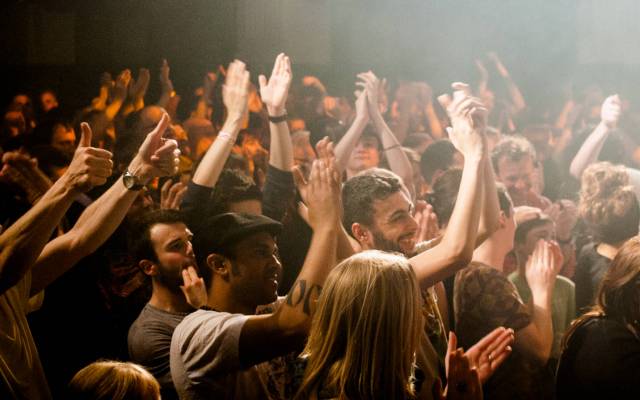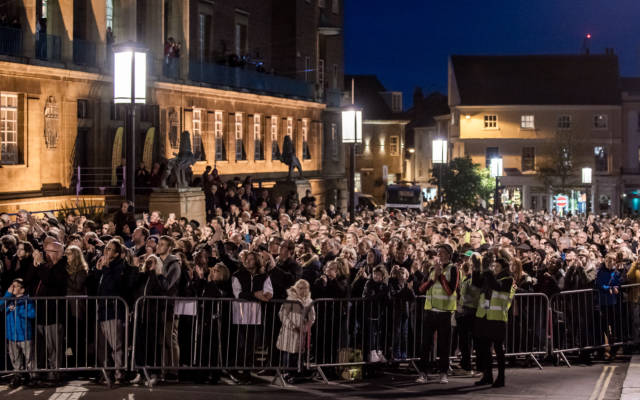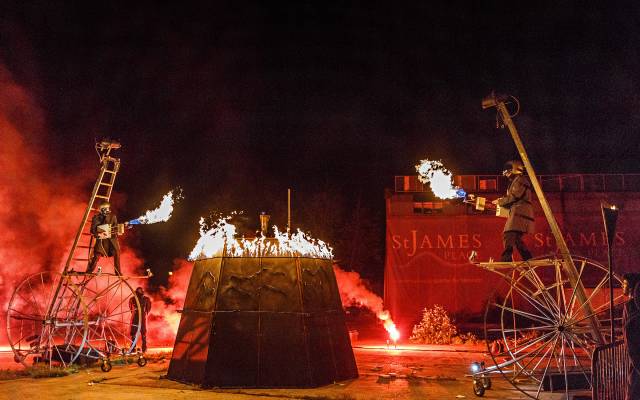22.10.20
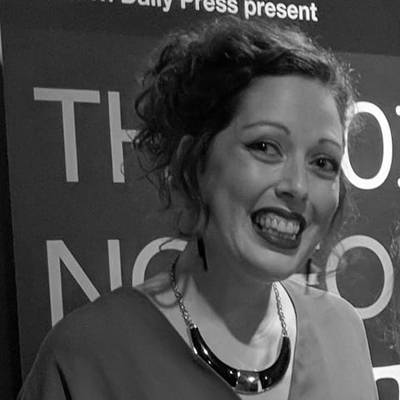
Why Creative Learning Matters
As we enter into an uneasy October Half Term, our Creative Learning Manager Sarah Witcomb took some time to think about why we run our year-round arts education programme. In this post, Sarah advocates for the enormous benefits of creative learning in schools, for children, parents, communities, and our collective health.
Hi I’m Sarah, Creative Learning Manager at Norfolk & Norwich Festival. This is the first time I’ve written for a blog, and I’m finding it super exciting as I get to write it about something that I’m really passionate about. So, for context, I’ve worked in Creative Learning at Norfolk & Norwich Festival for around 10 years now, and I love the work I do because I think it’s really important to provide people with the opportunity to have creative experiences. I believe that meeting and working hands-on with professional artists is one way to create those intangible yet life-defining memories for people of all ages. I love the fun, curious and creative nature of arts and culture that can transform a place or people, and I love that I get to play a part in trying to provide that for other people, particularly children and communities.
Now, there are a few things I really want to talk about in this blog that I think are important to right now: teachers, finding opportunities to be creative, and why it all matters.
Firstly, teachers. I really want to thank you, whole-heartedly for what you do (for what you’ve always done), but particularly in the past six months and for what you’re doing right now. Teachers already play such a vital role in the life of our children (and when I say our children I’m talking collectively for our community of children, our future), but now more than ever as we battle through COVID, you are superhuman in your efforts to create safe spaces for children on a day to day basis. You not only educate, but you’re care givers to our children: you are easers of worries. You see a different side to our children to what we see at home. Our children spend more than 30 hours a week with you, so we can’t underestimate how important your role is in their lives.
Even before COVID, schools and teachers didn’t need any extra pressure to perform their jobs. I feel in recent months you have embodied what you teach children: resilience; a positive mind set; adaptability, all of which has been exemplified with the way you’ve worked with and continue to support the children you teach. With all the new measures in place you make sure children are safe and continue to learn, providing support, reassurance and positivity, even when you might not be feeling all that internally, during this really daunting time. The epitome of a swan!
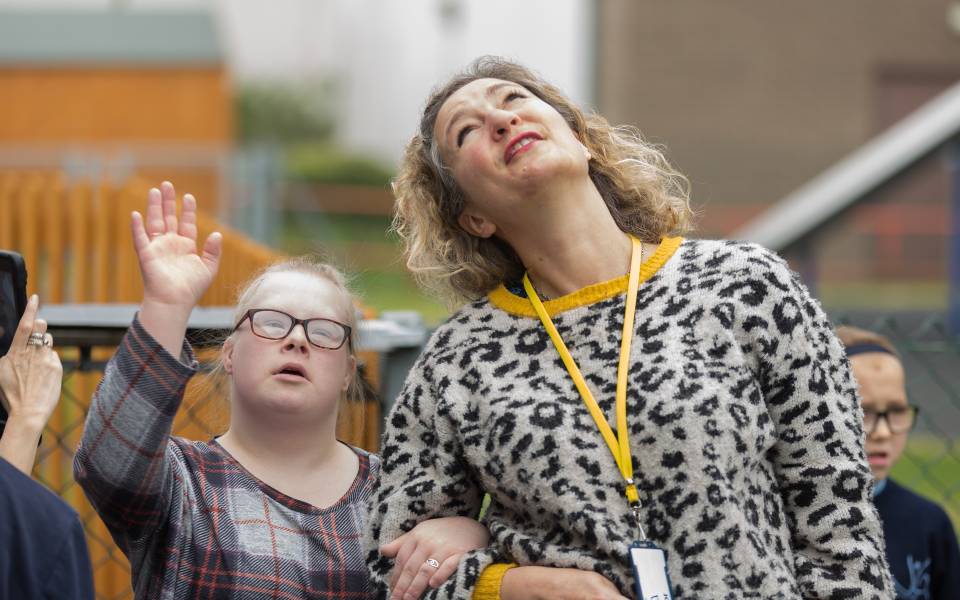
Secondly, opportunities to be creative. The definition of creativity is ‘the ability to produce original and unusual ideas, or to make something new or imaginative’ and as the brilliant late Ken Robinson stated, creativity can be taught – not through direct instruction – but by giving people opportunities, inspiration, encouragement and mentoring. As a sidenote, Ken Robinson said many many empowering and brilliant things about creativity and education, I encourage you to watch his TED talks and look him up if you’re not already familiar with him and the wealth of his work.
I believe that along with the core subjects at school, all children should be given opportunities to be creative. When I was younger I would search for opportunities to be creative. I would create borders to illustrate on a piece of writing. I turned a project about my life history and family into a folder with hundreds of pages, images and imagined futures. I turned a science project about acid rain into the opportunity to create an animation. These moments drove me to find creativity in the everyday, to make things more interesting. Now, I wasn’t a great illustrator, I wasn’t a great animator either and neither area became my profession. But being allowed those opportunities to try and explore, without an output, were the most valuable to me growing up. These are the things that I hope to create for any children, teachers or participants in our projects. Opportunities to try something new, explore their creativity and produce something original. As Ken said, we can teach this creativity, but we can also relearn how to be creative as adults.
People talk about the transformative nature of the arts and I’ve been able to experience it first-hand: from seeing children with learning difficulties communicating with key workers in ways they haven’t before, to audiences being moved to laughter or tears by the words of children. In our most recent project, we witnessed the positive affect of arts on concentration and behaviour. As the project progressed, the children spoke more confidently about their work in front of audiences, respecting each others ideas and becoming notably less disruptive in other lessons.
By giving children, and in particular children with financial and social barriers, the opportunity to work with top class artists and facilitators, you allow them to learn and express themselves in completely different ways. Our aim is that when these barriers are broken down with children, we can then begin to involve their parents and offer more opportunity for adults in our communities to share creative experiences too. I think everyone should be able to have creative experiences at some point in their life, and this is where the strength in our Creative Learning programme lies. The benefits are endless.
‘More than ever, children need arts and culture to help them make sense of the world around them. Escapism; exploration; creativity; fun, to communicate how they feel when it’s so hard to articulate how we all feel right now.’
More than ever, children need arts and culture to help them make sense of the world around them. Escapism; exploration; creativity; fun, to communicate how they feel when it’s so hard to articulate how we all feel right now. Arts and culture have such an important role in our society and I believe that this extends to helping our communities and children heal from this pandemic. Of course it won’t find a cure to a virus, but it might help in a way of recovery for some. It might help us ease back in to public spaces, in sharing our experiences of our world turning upside down.
We’ve provided creative learning workshops and activities for years now, with a focus on supporting children who traditionally wouldn’t get to experience the arts, with free or highly subsidised opportunities. As an organisation we need to be responsive to the changing world and with schools working so hard to support our children we have decided to take a new approach in our offer this year. Instead of offering a ready-made package, we are consulting with four schools in Norwich with the aim of creating extra help for teachers by providing an artist as part of enrichment work during this challenging time. We hope to offer teachers and children the opportunity to explore their creativity and have that hands on tangible experience of working with an artist and to offer some of the fun, creative and curious moments that led me to do the job that I do.
Header Image: Lost & Found Films of Norfolk Workshop, Mile Cross Primary © Robbie Maloney
Copy Image: Kate Munro Workshop, John Grant School © Paul Harrison, Book and Bounce Session, Dersingham © Paul Harrison
